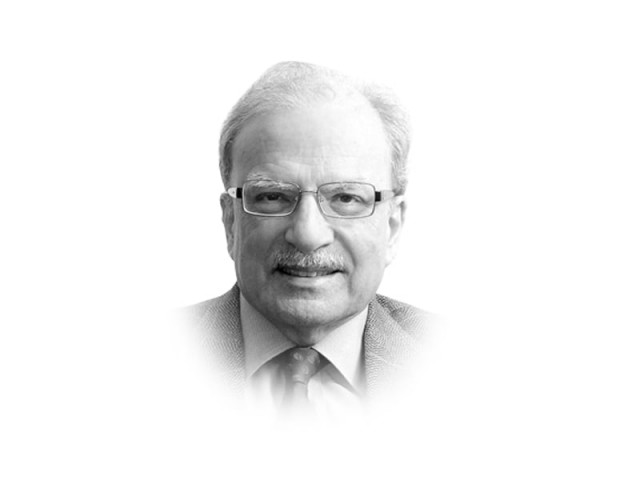Taking power to the people
The adoption of the Eighteenth Amendment was a revolutionary step.

Taking power to the people
Liaquat Ali Khan’s death was followed by the ascent to power of two strong men, made possible by the weakness of the political order. The first in line was Ghulam Mohammad, the country’s third governor general who was followed by Iskander Mirza, the fourth governor general and Pakistan’s first president. Liaquat left the political scene without resolving the differences between the refugees who had come from India and were able to dominate politics and the host populations who had numbers on their side. This conflict between the outsiders and insiders was to define Pakistani politics to this day.
The impact on Pakistan’s political development of the way Ghulam Mohammad and Iskander Mirza governed has largely been forgotten. Both were bureaucrats with technocratic flair and trusted those who were similarly inclined. Their dependence on the bureaucracy for wielding and exercising power gave the military the incentive to step in. Insofar as bureaucracies go, the military was much more organised than its civilian counterpart. Two of the strong men — Ayub Khan and Zulfikar Ali Bhutto — who followed Ghulam Mohammad and Iskander Mirza, thought it necessary to prescribe a legal framework within which to function. Both wrote new constitutions. The 1962 document unabashedly adopted as its basis a strong centre and limited participation for the citizenry in the working of the government. The 1973 Constitution reflected what the people wanted — a federal system with considerable dispersal of governing authority. However, prime minister Bhutto did not allow the federalist provisions to come into force in the political order he had authored. The original intent of Bhutto’s Constitution became possible 48 years after its promulgation. This resulted from the adoption of the far-reaching Eighteenth Amendment to the Constitution.
Whereas Ayub Khan and Bhutto wrote new constitutions, the two strong men who followed them, tinkered with the one they inherited. The fact that neither Ziaul Haq nor General (retd) Pervez Musharraf dared to abrogate the Constitution of 1973 was the fear that such a step would unleash a reaction that may not be controlled. That Constitution, unlike the one adopted in 1956, was the consequence of the exercise of popular will. Amending it to increase the power of the president was considered a feasible option rather than doing away with it altogether.
The adoption of the Eighteenth Amendment was a revolutionary step. It introduced two fundamental changes in the way the country should be governed. It took power away from the president and placed it back with the prime minister and his cabinet. The latter was responsible to parliament. It also provided the country a real federal structure and coming as it did after the issuance of the Seventh National Finance Commission award, it moved a considerable extent of control over public funds to the provinces. The first of these two changes has not produced much change in the way the country is governed. Most of the executive authority resides with the president, who is able to exercise it since he is the undisputed leader of the political party that controls the ruling coalition. The second change is being worked out. Both are important for dispersing power beyond Islamabad and making the provinces partners in the process of governance. Without such devolution, the Pakistani state will remain fragile.
Published in The Express Tribune, October 22nd, 2012.















COMMENTS
Comments are moderated and generally will be posted if they are on-topic and not abusive.
For more information, please see our Comments FAQ